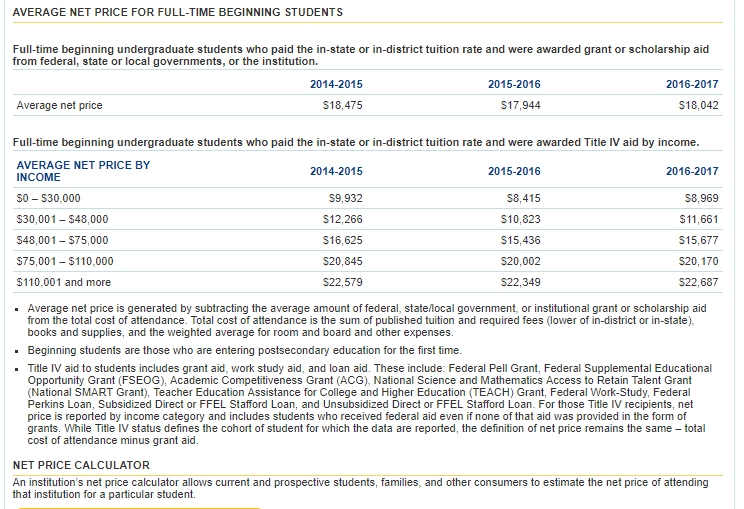 It’s fall for high school juniors and that means it’s time to jump right in and start those college visits. (Sophomores should start making these as well–there is much to be gained from making some preliminary visits.) If this is your first time visiting with a teenager you are in for a treat–drama on top of drama on top of drama. These visits are not for the faint of heart.
It’s fall for high school juniors and that means it’s time to jump right in and start those college visits. (Sophomores should start making these as well–there is much to be gained from making some preliminary visits.) If this is your first time visiting with a teenager you are in for a treat–drama on top of drama on top of drama. These visits are not for the faint of heart.
My own experiences with college visits still provide me with much needed comedy relief; although at the time they produced frustration and tears.
Here are four different college visit experiences we had with her. They prepared her for her final choice which wasn’t in Texas and wasn’t her dream school. You just never know where the journey will take you.
Baylor University
This wasn’t an actual visit, but it does demonstrate how emotional college visits can be. She refused to visit Baylor because Waco was the location of the Branch Davidian compound. Even though she had several friends who were considering that college and the setting and course offerings were perfect for her, she crossed it off the list before we ever set foot on campus.
North Texas State University
This was the only public university she visited and we had barely stepped out of the car before she said, “I don’t like it here. It’s ugly.” We did take the campus tour, which further cemented her distaste for the campus. It was one of the only colleges on her list that had a strong program of study that interested her, but there was no convincing her to consider it after the visit.
SMU
When we drove up to this private university, it was love at first sight. The campus is gorgeous and the buildings were immaculately maintained. After taking the tour, she decided to spend a night on campus. Meeting other students, seeing the sorority houses and spending time in a few of the classes cemented her love for this school. It would be the jewel to compare other colleges to; and she found one just like it in Boston.
Newberry College
This was a small college in the suburbs of Boston. She applied to this college because 1) it was in Boston, and 2) it had a strong program of study that she was interested in. We visited this college after she was accepted and offered a full-ride scholarship. She never got out of the car. Her words, “I’m just not feeling it.” You can imagine my frustration but I knew that if she wasn’t happy she wouldn’t excel there, especially this far away from home. So I counted to 10, we drove off, and went to the next college—the college she ultimately chose–Bentley College (a campus like SMU in Boston).
Those were my experiences, but yours might be entirely different. Prepare for your teenager to morph into these strange characters over the next several months.
The skeptic
Before you even get out of the car your kid announces that he’s just not feeling it. Don’t even attempt to decipher what that means because it’s impossible to understand. You’ve driven (or flown) to go to a college he had on a list and now he’s just not feeling it. Bench your anger, take a deep breath and get out of the car. You’ve come all this way and you’re going to visit the college. In the best of worlds he will get out with you. In the worst of worlds he’ll stay in the car. There’s not much you can do with an obstinate teenager; it’s best to move on.
The architect
And yet another alien appears. You’re walking around campus and your kid announces that he doesn’t like how it looks. Never mind that he’s not going to college for the buildings or the landscaping. He’s going for the academics. But for some reason his blinders aren’t allowing him to see anything but the buildings and no amount of pointing out the pluses is going to change his mind.
The critic
You’re walking around campus and your kid announces that the students don’t seem friendly. Mind you he’s probably not even spoken to any of them and it’s a good bet he didn’t like the tour guide. Don’t try to convince him otherwise because the more you say, the less likely he’ll come around. Just wait until a cute girl approaches him. He’ll change his tune quickly.
The panic-stricken
You get back into the car after your last visit and he announces, “I’m not sure I want to go to college”. Don’t panic. He’s just realized the whole thing is real and he’s terrified. Give him some time to think it through and tomorrow he’ll most likely change his mind again. The worst thing you can do is draw a hard line in the sand now because his feelings are likely to go up and down like a roller coaster over the next few months (or years).
What’s a parent to do?
Even though your kid wants you to treat him as an adult, he’s still a teenager. His emotions are all over the place and this next step in his life is frightening. Remember that college is largely an emotional decision and you should expect that emotions will play into that decision. When the dust settles and the emotions clear, he will make a decision based on all the factors, including his campus visits. After all, you don’t want him to attend a college he just isn’t feeling and you don’t want him to make a decision and leave out the emotional factor. He’s going to spend the next four years of his life at this school. It will become his second home and it’s important that he likes where he is.
As you can see, it’s not an exact science. You can plan and prepare all you want, do your research before visiting, and make a list of likes and dislikes prior to pulling up to campus. But it’s that first impression that will have a lasting impact on their college decisions. There’s nothing logical about a teenager. Prepare for a wild ride.









 Driving is an extremely valuable life skill. There are so many perks that come hand in hand with it. Being able to get behind the wheel of your own car means that you no longer rely on public transport options and gain the freedom of travelling at any time of the day or night. You will also no longer be tied to public transport routes and stops, as you can go wherever you want, as long as there’s a road that can take you there. Driving also opens up a whole host of job opportunities, as increasing numbers of employers
Driving is an extremely valuable life skill. There are so many perks that come hand in hand with it. Being able to get behind the wheel of your own car means that you no longer rely on public transport options and gain the freedom of travelling at any time of the day or night. You will also no longer be tied to public transport routes and stops, as you can go wherever you want, as long as there’s a road that can take you there. Driving also opens up a whole host of job opportunities, as increasing numbers of employers  It’s fall for high school juniors and that means it’s time to jump right in and start those college visits. (Sophomores should start making these as well–there is much to be gained from
It’s fall for high school juniors and that means it’s time to jump right in and start those college visits. (Sophomores should start making these as well–there is much to be gained from  There are many aspects to college life which both you and
There are many aspects to college life which both you and  Do you remember the days of being in college? For the most part, it’s full of so many happy memories, life lessons, and ways of creating a future for yourself. While
Do you remember the days of being in college? For the most part, it’s full of so many happy memories, life lessons, and ways of creating a future for yourself. While  College is a fun time for students, who are getting out into the world, trying new things, and figuring out who they are. But it’s true that many students
College is a fun time for students, who are getting out into the world, trying new things, and figuring out who they are. But it’s true that many students